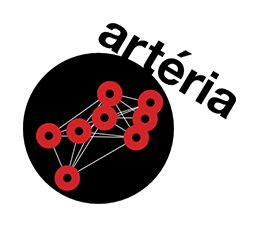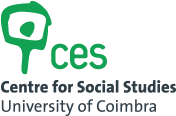Building networks through the artistic creation
What's the problem?
In which way can artistic activity contribute to refund the basis of citizenship and democracy? In which way may cultural and artistic activity promote urban sustainability of small dimension cities and small interior cities? These are some of the questions which led academics and arts professionals to join in the sense of developing collaborative works uniting the scientific knowledge to the artistic practices. These collaborative experiences, which integrate multiple dimensions of our societies; artistic, cultural, civic and academic, seek to facilitate an integrated conception of the social and cultural questions and their relation with the urban spaces and the territories of their closest vicinity. For such, it's necessary to find forms of articulating the academic and non-academic knowledge and develop, in a collaborative way, strategies and methodologies which can transform the territories into more attractive, less impoverished and more socially active and interventive zones.
What are we doing?
Project Rede Artéria (Artery Network), academically coordinated by CES and artistically coordinated by Coimbra's Teatrão Profesional Theatre Company, presents a proposal of working with an ensemble of partners and collaborators which themselves represent a radiography of the communities at issue, fostering the need of information circulation and working on the mobilization capacity of those same communities, transforming merely geographic territories into relational communities. In this dynamic, the project included a set of cities of Portugal's North-Centre region, comprising not only the litoral area – Coimbra and Figueira da Foz, but also the more inner zone – Fundão, Tábua, Viseu, Belmonte, Guarda and Ourém. The aim is the creation of a regional cultural dynamic with a local social impact, which may offer a proposal of change at the Centre region level and its relation with the national and international territory.
The project is built on the basis of three central tasks, where woks such as the cultural, communitarian and participative mapping will take place, with the objective of compiling and assessing the best practices.
The work plan also integrates the implementation of research labs with a set of relevant partners (investigators, cultural agents, artists and municipalities), where the final purpose is to implement co-creation processes for the development of artistic intervention projects of participative character which have as their departure point the cultural and patrimonial (material and immaterial) resources of each Artéria (Artery) territory.
What do we seek to bring about?
In particular, the scientific monitoring of the Artéria project in the different cities intends to develop a relation between this academic follow-up and the artistic creation processes. This monitoring implies the development of an investigation-action methodology with two edges.
The first edge is a pedagogical edge, which presupposes the integration of students from the partner Academic institutions and their academic works in the artistic creation processes decurring in the Artéria cities. The second edge (the investigation-action edge) integrates the follow-up of the artistic creation processes by the associated teams of investigators. The Cultural Mapping is accomplished here in its direct connection with the artistic creation processes, assuming the investigation-action process itself a double function: social analysis and direct intervention to influence the transformation of the social and cultural reality. On the other hand, it should also draw scientific follow-up which intertwines with the artistic creation and presentation processes, such as socio-cultural inventory of the publics, a process which implicates the parallel use of different methodologies of information gathering about Rede Artéria's publics. The processes associated to creation are also target of this monitoring work. Along the whole rehearsal process of the new creation, we perform a qualitative monitoring of each creation/intervention's construction process. In the end of the project, we intend to produce a set of dissemination materials and final products aimed at valuing the artistic creation, articulating these processes with the scientifically produced materials, such as reports, scientific articles, master thesis and books, amongst others.
During the year of 2018, processes of creating artistic intervention projects took place in five cities (Coimbra, Fundão, Guarda, Figueira da Foz and Ourém). Each of these projects circulated through three more Rede Artéria cities. The first show inaugurated on the 30th June 2018, in one of the main arteries of the city of Coimbra. “Sofia, Meu amor!” (Sophie, mon amour!) has centred on the relation of Sofia's Street (Rua da Sofia) with all those who inhabit and frequent it.
This year, in Viseu, takes place “Borralho - Festival de Inverno para Pequenas Peças à Beira do Fogo” (Winter Festival for Small Plays by the Fire), where Ulisses's return is adapted to Viseu's region, and where the characters receive the spectators in residents' houses of Viseu's Municipal Neighbourhood, of Várzea de Calde, Aval and Silgueiros de Bodiosa, which will be transformed to imagine how this story would be if it had happened in Viseu.


Artéria
o Centro em Movimento
Cláudia Pato de Carvalho
January 1, 2018 to December 31, 2021
FCT
FEDER
Portugal 2020

